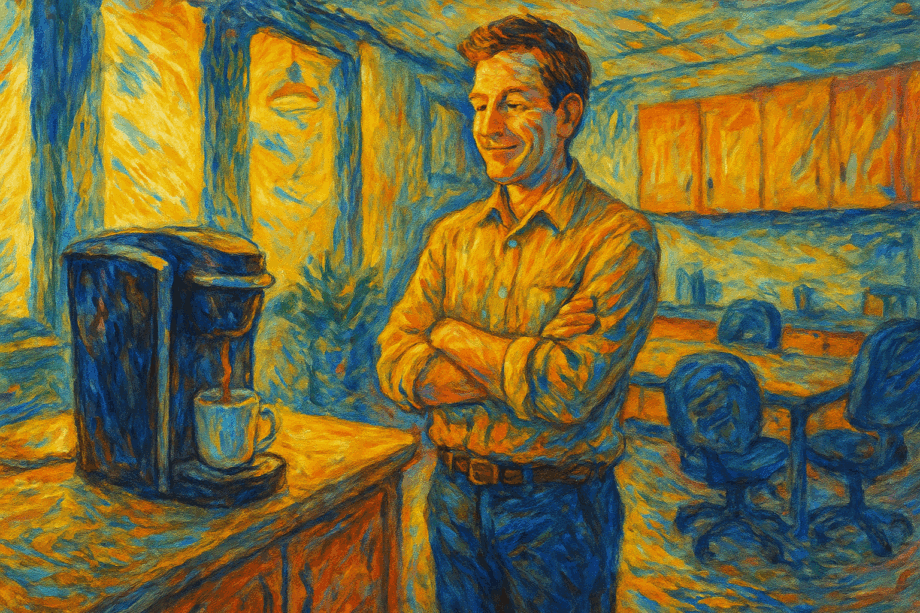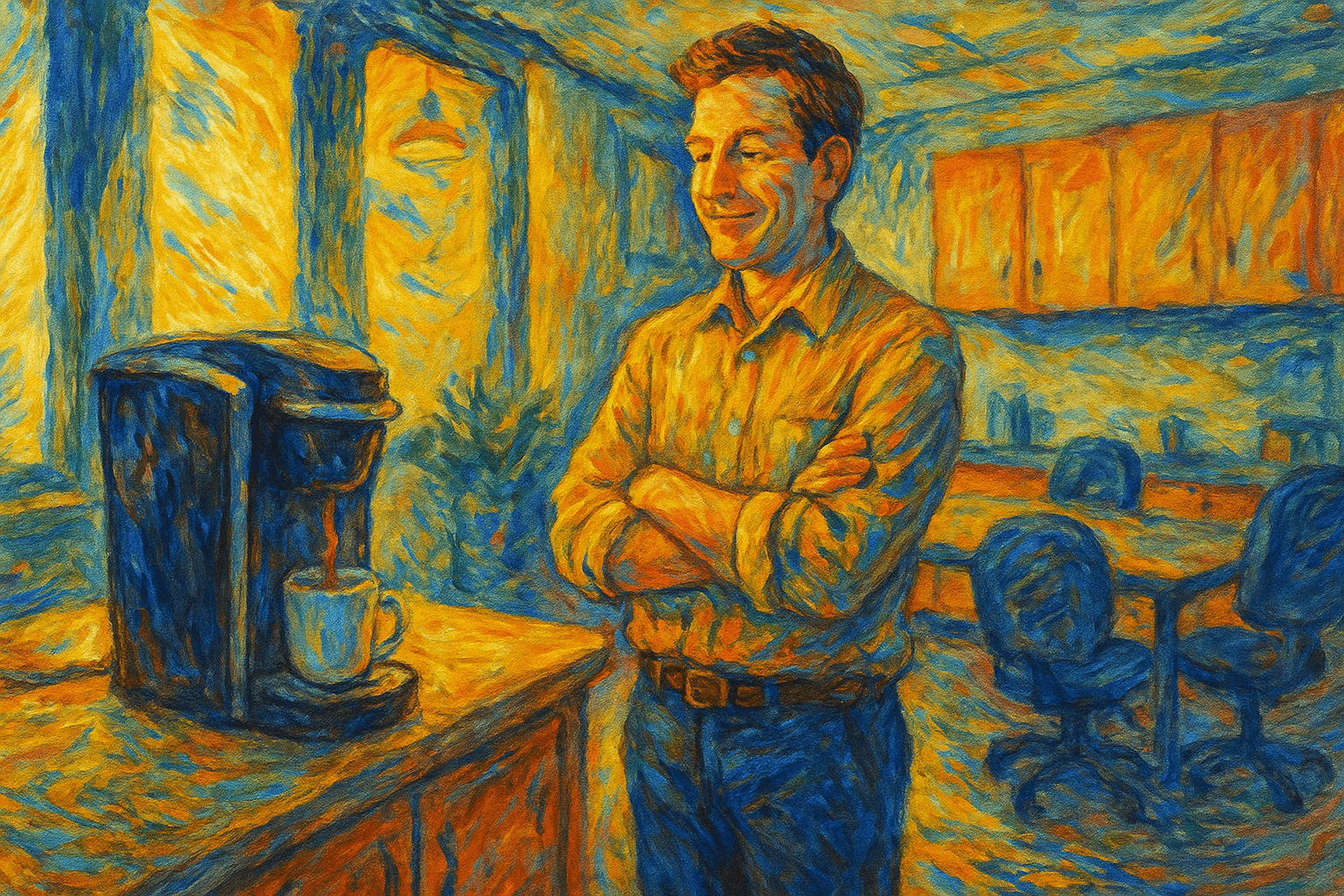“Beware the barrenness of a busy life.”
Socrates
There was a stretch in my early thirties when I started slipping into the office a little before everyone else. It wasn’t discipline. It wasn’t ambition. I think I just needed a few minutes where no one was asking me for anything—a small pocket of quiet before the day woke up.
We had a great space—a real office, familiar in all the small ways that matter. There was the usual fluorescent hum in the hallways, but the break room was warm and lived-in. A place people lingered. You could hold a conversation there, or avoid one if you needed to. Both options were acceptable.
And in the corner, like a small, slightly judgmental altar: the Keurig.
I didn’t make pour-overs or French press back then. I wasn’t that kind of person yet.
Back then the K-cup was my ritual. My default. My anchor for the day. Later on it became the doorway to a dozen casual conversations, but in those early hours it was just me and the quiet—standing there in the half-light, waiting for the machine to wake up before I did.
But even then, I rushed it. Every morning.
Foot tapping.
Jaw tightening.
Muttering “come on” under my breath like the machine was intentionally holding something hostage.
There was no reason for it.
No meeting waiting for me.
No urgent task.
Just me, a cup, and a stream of coffee that always felt slower than physics should allow.
I didn’t have the language for it at the time, but looking back, I can see it clearly:
I wasn’t impatient with the coffee.
I was impatient with myself.
There is a version of me in those years who lived life like it was a test he hadn’t studied for. Like every delay was a flaw. Like if he just stayed in motion, no one would realize he was making it up as he went.
Hurry can feel like competence if you don’t look too closely at it.
I wasn’t trying to become that man.
But impatience has a way of slipping in unnoticed—one tiny, harmless rush at a time.
Tap your foot at the Keurig.
Tap your foot at the microwave.
Tap your foot at your own reflection because you’re already behind and you haven’t even started the day.
You don’t set out to become hurried.
You just wake up one day and realize you’ve been treating everyday life like a timed event.
Of course, I didn’t know any of this then.
At the time, it was just coffee.
Just a machine taking its sweet time.
Just a younger version of me who didn’t know how to wait because waiting felt like wasting something—time, potential, momentum, who knows.
Years later—after kids, after real responsibilities, after life had rounded off a few of my sharper edges—I found myself thinking about that break room again.
I was standing in my own kitchen this time, waiting for a kettle to boil. It was early, the kind of early where the house is still and the quiet feels earned. One of my boys was sitting at the table, half-awake, eating a bagel in slow motion. And for reasons I can’t fully explain, the memory just… arrived.
Me.
Younger.
Rushing a machine that wasn’t designed to go faster.
It hit me how much of my life back then was spent hurrying through moments that weren’t meant to be hurried. The coffee. The commute. The conversations. The version of myself I kept trying to leapfrog past.
Patience wasn’t the virtue I lacked.
It was the mirror I avoided.
Waiting brought up all the small, ordinary discomforts I didn’t want to sit with—the restlessness, the self-pressure, the habit of thinking I should already be further along.
But slowing down—really slowing down—was how I started becoming the man I needed to be. A steadier dad, a kinder husband, a person who could sit still, listen, breathe, and let life come on its own terms.
The Keurig didn’t teach me patience.
It just revealed how much I needed it.
The coffee was never the point.
The stillness was.






